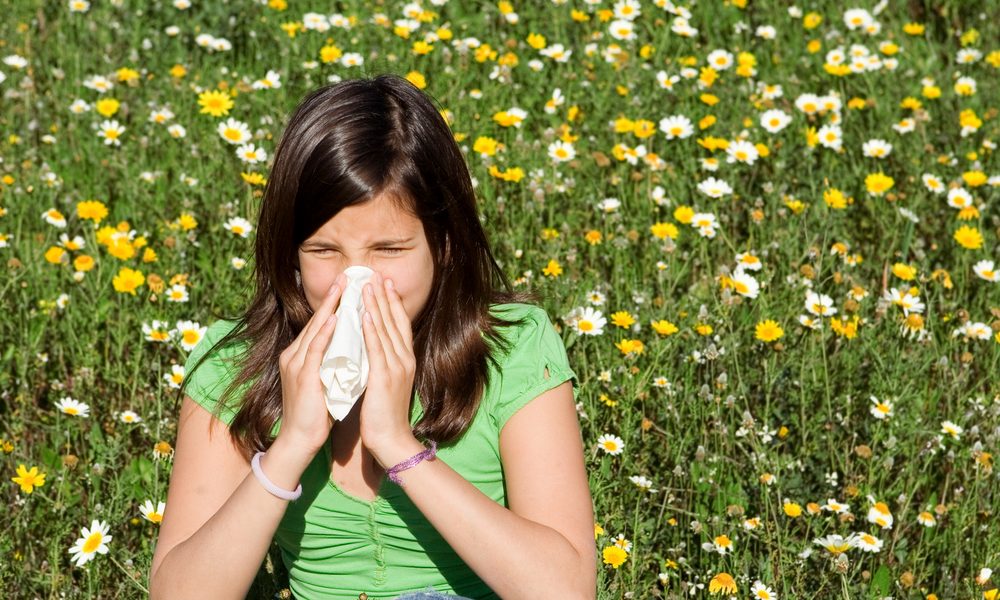
Hayfever Spreads as Pollen Levels Hit Record High in UK!

One thing that a lot of people will agree on, is that having a stuffy nose is one of the most annoying things to deal with. You can’t breathe properly, can’t taste anything, and can’t seem to do much about it. It just happens, and when it comes, it comes hard.
The best thing we can possibly do is to try and alleviate the stuffiness as much as possible by making use of medicines and maybe even home remedies. But such things aren’t guaranteed to work, and you will most likely just have to power through it. For those who are allergic to pollen, are most probably likely to experience a very uncomfortable couple of weeks to come.
Extremely High Pollen Levels
Unfortunately for those who susceptible to hayfever, pollen levels are currently at a seasonal high. People have recently been warned by the Met Office that affected areas include the South of England and a part of Wales.
Scotland and Northern Ireland have seemingly better conditions, but people are warned that they are to expect worsening conditions in the coming weeks. According to Met spokesperson Grahame Madge, the cause of the spike is apparently the recent weather, which also coincides with grass season.

Ralf Geithe/Shutterstock
Madge also adds that it is a combination of factors that led to this situation, and meteorological effects are only partly to blame.
All conditions recently have helped along the release of pollen, and up until now, most pollen release has been from trees. Grass pollen has started to spread though, and the amount has been extremely high. This is a warning given especially to those who are extremely allergic to pollen. Madge also adds that as the season progresses, more and more pollen is going to be released by grass.
Though the levels for this year have been really high, it is not exactly unheard of for something for this to happen. Despite this though, it is still within the highest category, so pollen-sensitive people should try to avoid it as much as possible. They are advised to avoid alcohol, for the time being, wear sunglasses when outside, change clothing regularly, keep the windows in the house closed, and always be mindful of removing pollen on the skin and clothes as often as possible.

fizkes/Shutterstock
According to Allergy UK, 30% of adults, and 40% of children suffer from hayfever.
Hay Fever Facts
Hayfever, which is also known as allergic rhinitis, is fairly common around the globe. The medical care cost worldwide for this affliction is said to be as high as £2.5 billion. The figure is due to the fact that prescription medication is usually bought in order to combat the affliction. Despite that, the figures are most probably an underestimate due to the fact that most sufferers of hayfever attribute their sickness to the common cold. Though it is more prevalent amongst children, the condition affects people of all ages, and may sometimes occur due to years of inhalation of allergic substances.
Though hayfever can be triggered by almost anything under the sun, the most common one is proteins. Commonly, allergic rhinitis occurs because of the allergic person coming into contact with several times with proteins from plants. Many kinds of grass, trees, and weeds create extremely small, dry, light protein particles called pollen. This is propagated by the wind and is inhaled. These pollen particles are actually the male reproductive cells of the plant and are smaller than the tip of a pin or less than 40 microns in diameter.
Avoidance of the allergic substances is the most effective way of controlling allergy symptoms. Attempting to control the environment and avoiding said allergens often significantly help in curing symptoms. However, allergy avoidance is usually not easy. A thorough talk with your doctor is recommended, and daily control measures might be required.
If avoidance is not possible or does not relieve symptoms, additional treatment is needed. Many patients respond to medications that combat the effects of histamine, known as antihistamines. Some home remedies might also be taken, but people must take care to remember that it might not work and that it might even make the condition worse.
More in Health & Well-being
-
`
Why Adults With ADHD Are 3x More Likely to Develop Dementia
We have all heard of ADHD, haven’t we? Hyper kids, distractions galore, restless minds – these are images we often associate...
December 11, 2023 -
`
Signs of Emotional Connection in Relationships
Building a strong connection with someone isn’t just about being in sync or sharing hobbies—it’s about that deeper bond, where you...
December 4, 2023 -
`
Hollywood’s Shortest Marriages: Britney Spears, Carmen Electra & More!
In the glitzy world of Hollywood, where fairy tales often unfold on the silver screen, there exists a flip side—a realm...
December 3, 2023 -
`
The Surprising Benefits of Unplugging
In today’s hyper-connected world, where we are constantly bombarded with notifications, messages, and the allure of social media, disconnecting may seem...
November 26, 2023 -
`
How “Looking Your Best” Improves Our Wellbeing
Most of us have had moments standing in front of our closet, deciding on an outfit for the day. And we...
November 15, 2023 -
`
Therapy? Medication? What Are the Treatments for PTSD
Post-Traumatic Stress Disorder (PTSD) is a common after-effect of traumatic events. It can be a debilitating condition, but the good news...
November 7, 2023 -
`
Meet the Woman Who ALMOST Married Barack Obama
Barack Obama’s life has been a captivating narrative, often told and retold, with each revelation adding layers of intrigue to his...
November 5, 2023 -
`
The Rise of Caviar Bumps, Thanks to Gen Z
In an intriguing twist of culinary culture, millennials and Gen Zers are drawn to an unusual indulgence – fish eggs, or...
October 28, 2023 -
`
Everything You Need to Know About Acid Reflux, Heartburn and GERD
Ever had that burning-in-the-chest sensation after a meal? Or perhaps you have lain awake at night with an odd sour taste...
October 17, 2023















You must be logged in to post a comment Login